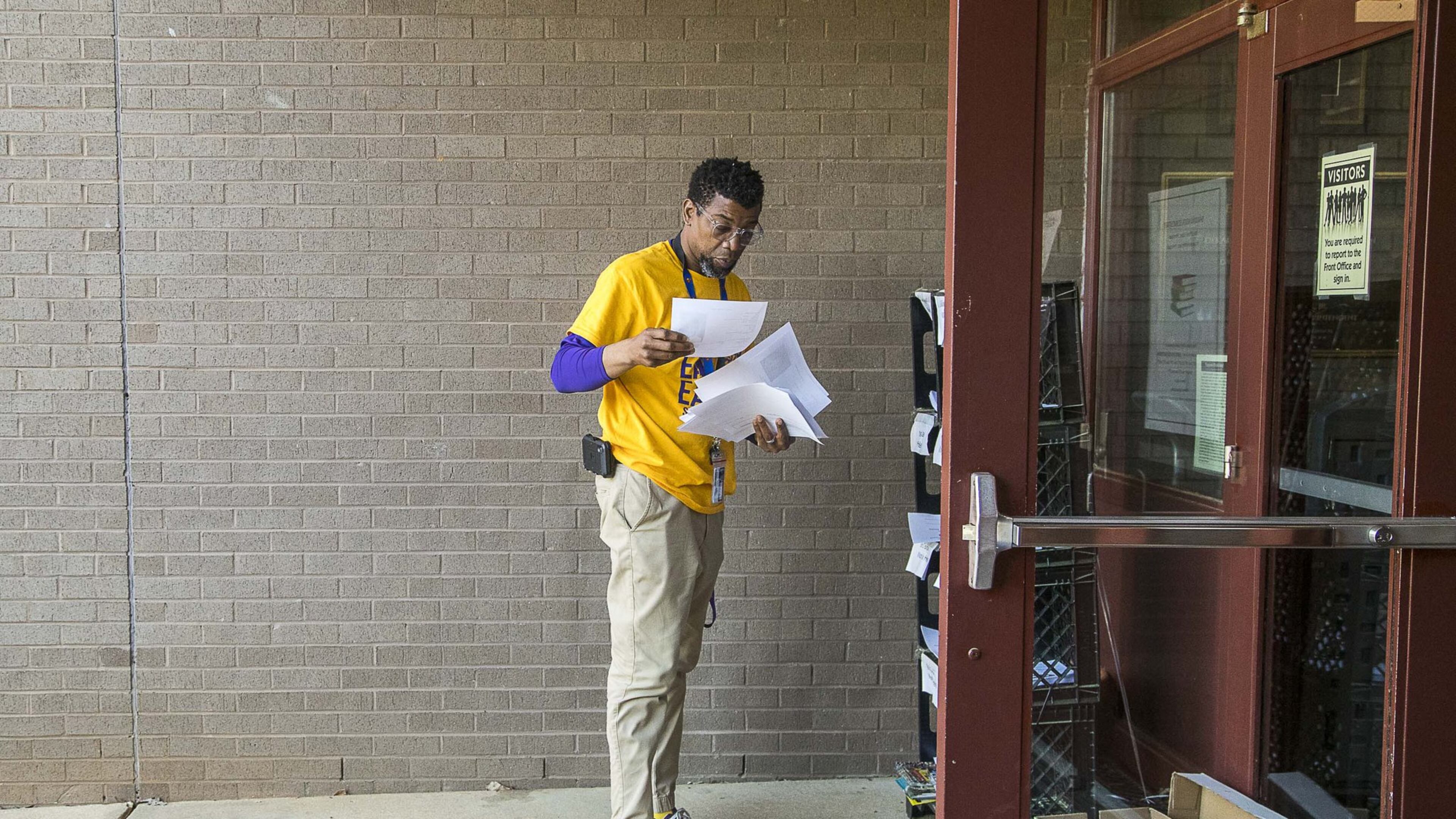Amid COVID-19 shutdown, principal aims ‘above and beyond’ for students

The analytics email Ethan Suber received Monday morning summed up the previous six weeks.
“ ‘Consider turning off notifications outside of work hours’,” Suber, 48, principal at Lithonia’s Shadow Rock Elementary School, read aloud. “Nope. Can’t do it.”
Suber has spent much of the time since March 12 — when metro Atlanta school districts initially shuttered school buildings to help curb the spread of COVID-19 — working on solutions to help keep teachers and students connected as learning continues outside of classrooms. That has sometimes meant calling parents, logging into the online learning system at ungodly hours to leave notes of encouragement for students and teachers, even personally delivering homework to students' homes. All while still getting to know them, having been chosen to lead the school in mid-January.
“Whatever it was, I knew I had to be ready,” he said.
DeKalb County School District Superintendent Ramona Tyson said Suber is just one of many examples of DeKalb Schools leaders going above and beyond to ensure as seamless a process as possible for the learning experience.
"They are resilient and dedicated to helping their students and staff through these unprecedented times," she said of her district's schoolhouse leaders. "Principal Suber has exhibited a 'go beyond the call of duty' spirit to help his students. His meet-them-where-they-are disposition shows his commitment to their educational growth."
On March 16, the first school day after DeKalb closed school buildings, Suber said he parked his car in his assigned space in front of the school and headed into the building around 6:30 a.m. like any other day. Just under half of his 576 students logged in that day to Verge, the district’s digital learning platform. Teachers had uploaded lesson plans to get students through two weeks of learning, the time many initially thought buildings would be closed.
Not everybody adjusted quickly to the digital learning plan.
Suber said parents still showed up that morning to drop their children off for school. Others showed up looking for other assignments, saying they did not have equipment at home for their children to do school online. Others needed access to the building to pick up materials and supplies their children left at school not knowing the buildings would close. He talked to them through the front office intercom, told some some to come back in the afternoon for printed school lessons.
Among other things, the schools shutdown exposed weaknesses in digital readiness across the country. For DeKalb, students in grades six through 12 can receive Chromebooks to take home. It's a different story for fifth-grade students and below. The district was recently awarded nearly $4 million from the Georgia Department of Education to address digital readiness.
“We’re trying to do this virtual learning thing and most (families) don’t have the resources, but they still want to support their children,” he said.
Suber assembled paraprofessionals to call each family, surveying their needs using a survey crafted that first day from different issues as they came up. Aside from access to devices and WiFi, some families have issues accessing adequate health care and also are dealing with food insecurities and unstable housing. As a result, homework packets are available outside the school’s main entrance for students not completing work by computer. Suber said he also made pages on Verge where he could interact with parents and teachers to encourage them and understand issues they faced while navigating the new normal.
"You have to overstand," he said. "You have to be on step 12 when they're on step 2. You have to have an answer. All people want is an answer."
Suber said there was no way to know everything that would be needed from schools, and is adamant that the teachers and other administrators in his building get credit for their part. Teachers found themselves rethinking lessons for students to be able to complete without a teacher standing in front of a classroom ready to help. Shadow Rock assistant principal Jason Moffitt is charged with leading plans for how school resumes in the new school year, which already include plans for remediation to address any learning deficits due to the extended classroom absence.
Most days, Suber leaves the building and goes right to his home office, working well into the evening many days posting messages to students on their various assignments. His wife said while she teases him about the time he spends working while at home, she knows it’s no different than if the schools were open.
“It just speaks to his dedication as an administrator,” Lisa Suber said. “I know who I married. I know how dedicated he is. I think everybody needs some structure right now. He’s providing that.”
Ethan Suber said he just wants to be available like he would be when their building was open.
“I’m still new here,” he said. “I want them to know this is who I am. I’m going to go above and beyond to bridge the gap where I see it.
“No job is too big or too small for the principal.”



